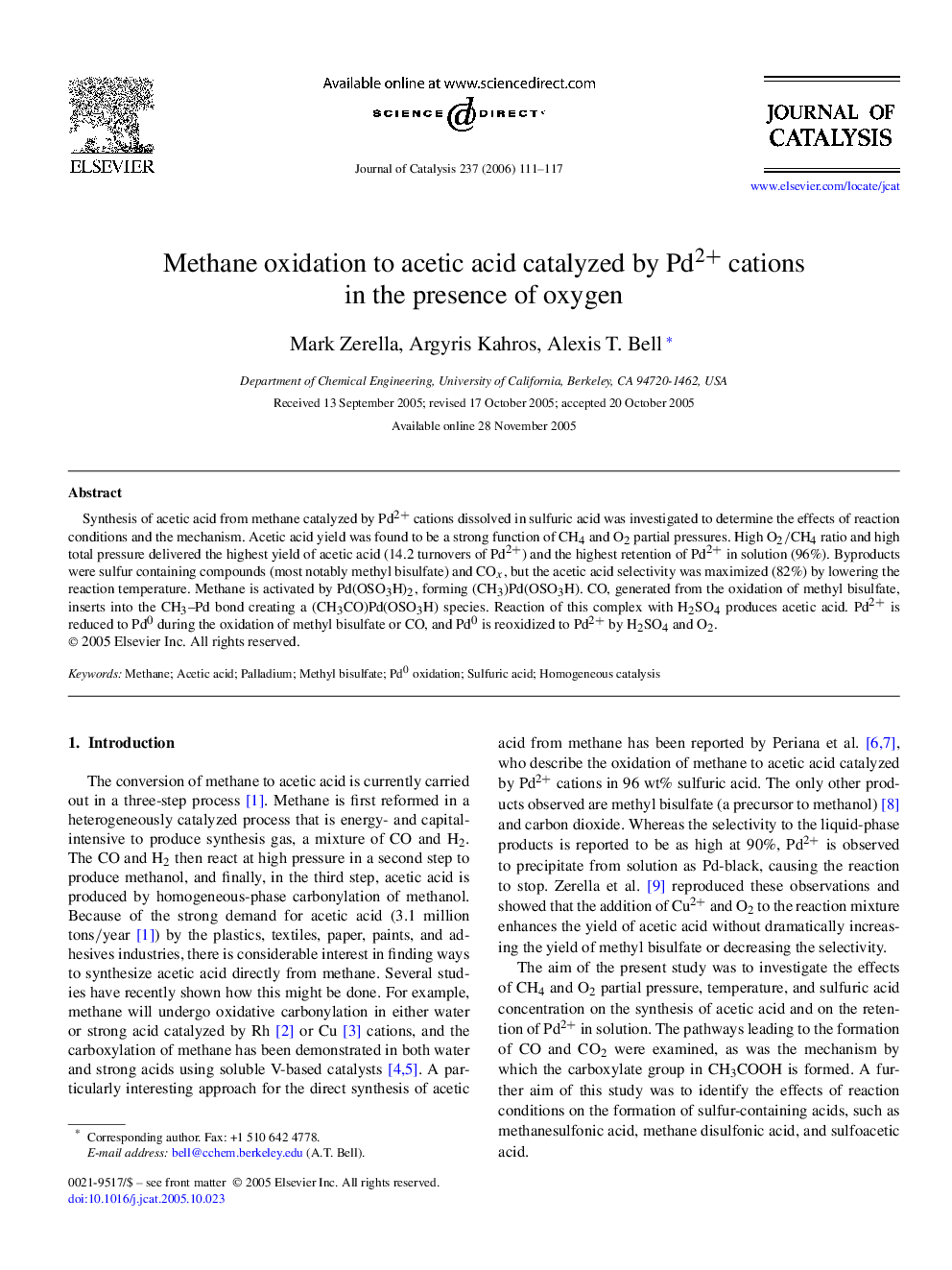| Article ID | Journal | Published Year | Pages | File Type |
|---|---|---|---|---|
| 63420 | Journal of Catalysis | 2006 | 7 Pages |
Synthesis of acetic acid from methane catalyzed by Pd2+ cations dissolved in sulfuric acid was investigated to determine the effects of reaction conditions and the mechanism. Acetic acid yield was found to be a strong function of CH4 and O2 partial pressures. High O2/CH4 ratio and high total pressure delivered the highest yield of acetic acid (14.2 turnovers of Pd2+) and the highest retention of Pd2+ in solution (96%). Byproducts were sulfur containing compounds (most notably methyl bisulfate) and COx, but the acetic acid selectivity was maximized (82%) by lowering the reaction temperature. Methane is activated by Pd(OSO3H)2, forming (CH3)Pd(OSO3H). CO, generated from the oxidation of methyl bisulfate, inserts into the CH3Pd bond creating a (CH3CO)Pd(OSO3H) species. Reaction of this complex with H2SO4 produces acetic acid. Pd2+ is reduced to Pd0 during the oxidation of methyl bisulfate or CO, and Pd0 is reoxidized to Pd2+ by H2SO4 and O2.
